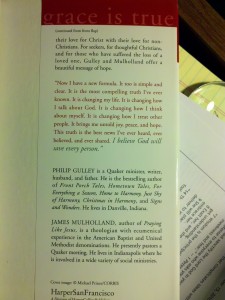Theology
Three Myths about the Book of Revelation
I begin this series on David’s book with three myths about Revelation:But first a question: What “myths” do you think need to be announced about reading the Book of Revelation?#1: Revelation is about us.The first principle for Bible reading is that it was first for them, the original audience. Begin there. John wrote this book to seven real churches in the 1st Century.#2: What Revelation reveals is our future.It opens with the word “prophecies” Rev 1:3. Prophecy as prediction leads to three approaches: historicist, futurist, and preterist all 1st Century stuff. If prophecies are not predictions so much as word-of-God to those churches, this whole approach is shelved. They are oracles to those seven churches. They were designed to evoke response to God, not reveal secrets about the future.#3: Revelation is written in mysterious code.But John says the book is a “revelation” or an “unveiling” or an “apocalypse,” which means now the truth can be known not, now I’ll muddle things up with clever symbols. David’s right; this book was meant to be understood and it was — by author and audience. The book lifts the veil on what’s happening then … that is, it opens up the curtain for all to see what’s really going on on Rome’s stage.
GFL Study Forum • View topic – What is the Gospel?
What is the Gospel?
by Theophilos on Fri Mar 07, 2008 10:29 am
What is the Gospel?
I asked this question in a Bible study group with about twenty people. I gave them time to write out their answer. The answers were unexpectedly varied indicating that there is little common understanding of what the gospel is. Can “the gospel” have different meanings? Paul said, there was one gospel which is the death burial and resurrection of Jesus. 1Corinthians 15:1-4
The term is frequently used in preaching, teaching and Bible studies and many times seems to imply more than Paul’s statement. When used in this way, it is a term which people will define by projecting their particular idea into it, similiar to the terms “hope” and “change” which politicians use.
How many passages in the Bible can be considered the gospel, or “good news”? Many denominations preach the “Sermon on the Mount” as applicable to Christian living.
17 Think not that I am come to destroy the law, or the prophets: I am not come to destroy, but to fulfil. 18 For verily I say unto you, Till heaven and earth pass, one jot or one tittle shall in no wise pass from the law, till all be fulfilled. 19 Whosoever therefore shall break one of these least commandments, and shall teach men so, he shall be called the least in the kingdom of heaven: but whosoever shall do and teach them, the same shall be called great in the kingdom of heaven. 20 For I say unto you, That except your righteousness shall exceed the righteousness of the scribes and Pharisees, ye shall in no case enter into the kingdom of heaven. Matt 5:17-20 (KJV)
Was that “good news” for the Jews He was teaching?
Here is what Jesus said to Martha in Chapter 11 of John’s Gospel.
21 Then said Martha unto Jesus, Lord, if thou hadst been here, my brother had not died. 22 But I know, that even now, whatsoever thou wilt ask of God, God will give it thee. 23 Jesus saith unto her, Thy brother shall rise again. 24 Martha saith unto him, I know that he shall rise again in the resurrection at the last day. 25 Jesus said unto her, I am the resurrection, and the life: he that believeth in me, though he were dead, yet shall he live: 26 And whosoever liveth and believeth in me shall never die. Believest thou this? John 11:21-26 (KJV) (My emphasis in red.)
So what do you say the Gospel is?
John MacArthur’s book “the Gospel According to Jesus” is about “Lordship salvation” and “making” Jesus Lord in our life. Is that “Good news”?
Jesus is Lord of our life; we don’t make Him Lord of our lives.
Copyright © 1996 – 2008 Theophilos and gflstudy.org web site. All rights reserved.
No Condemnation
This is one of my all-time favorite books. Dr. Narramore is a Professor at Biola. There are several extremely helpful chapters and concepts in this book.He makes a strong case that human “conscience” was derived from “the Fall” and contrary to how many Christians think. It is not the way God talks to us. In fact, the conscience is why humans think they don’t need God. They can be self-sufficient. Or, that the conscience was given to humanity by God, so they can know what is right and wrong.
Another significant theme is that “guilt feelings” should never be used to motivate anyone.
The Two Covenants
This is an example of a book about the two covenants, which misunderstands what the New Covenant is. This is an old-time-religion book. I think he writes according to what his professors taught him and not according to a personal understanding of scripture.
He says the primary purpose of the New Covenant “is to meet the need for a power of not sinning.”(Pg.56). Wow, it sounds like some type of power is transfered to us in order for us to defeat sin in our life. How is that working for you?
Later he says “The great blessing of the New Covenant is obedience; the wonderful power to will and do what God wills.”(Pg. 123) Obedience is a term related to a law or a rule, but New covenant Christians are not under the law.
The New Covenant has two commandments both based on love. It is not possible to be obedient to these commandments. Love simply becomes a duty if it is done for obedience.
So. this is a good study in what the New Covenant is not.
I read a book like this critically and probably get as much or more out of it than one with which I agree.
Hebrews 8:10-12; 10:5-10; 10:17-18
Ephesians 1:7-8
Colossians 1:21-22
2Corinthians 3:5-6 3:7-11; 5:18-21
The Inescapable Love of God
The following is based on content from his book. “Universalism, Calvinism, and Arminianism: Some preliminary reflections.
When I first began interpreting the New Testament along universalist lines, I was struck by how many regarded such an interpretation as not only mistaken, but utterly unreasonable and heretical as well. I found that a good many of my Calvinist friends, who did not regard Arminianism as heretical (only mistaken), and a good many of my Arminian friends, who did not regard Calvinism as heretical (only mistaken), were united in their conviction that universalism is both mistaken and heretical. This curious response started me thinking. Why should Calvinists regard universalism as any more heretical than Arminianism?–and why should Arminians regard it as any more heretical than Calvinism?
As I reflected upon these questions, I also began to reflect upon the following inconsistent set of propositions:
(1) It is God’s redemptive purpose for the world (and therefore his will) to reconcile all sinners to himself;
(2) It is within God’s power to achieve his redemptive purpose for the world;
(3) Some sinners will never be reconciled to God, and God will therefore either consign them to a place of eternal punishment, from which there will be no hope of escape, or put them out of existence altogether.
If this is indeed an inconsistent set of propositions, as I believe it is, then at least one of the propositions is false. Calvinists reject proposition (1); Arminians reject proposition (2); and universalists reject proposition (3). But in fact we can also find *prima facie* support in the Bible for each of the three propositions. So one day I sat down and, setting aside disputes over translation and sophisticated theological arguments, began to review the obvious.
In support of proposition (1), one might cite such texts as II Peter 3:9: “The Lord . . . is not willing that any should perish, but that all should come to repentance”; I Timothy 2:4: God “desires all men to be saved and to come to the knowledge of the truth”; Romans 11:32: “For God has imprisoned all in disobedience so that he may be merciful to all”; and Ezekiel 33:11: “As I live, says the Lord God, I have no pleasure in the death of the wicked, but that the wicked turn away from his way and live . . ..” All of these texts seem to suggest that God sincerely wants to achieve the reconciliation of all sinners, and that his failure to achieve this end would therefore be, in some important sense, a tragic defeat of one of his purposes.
Similarly, in support of proposition (2), one might cite such texts as Ephesians 1:11: God “accomplishes all things according to the counsel of his own will”; Job 42:2: “I know that thou canst do all things, and that no purpose of thine can be thwarted”; Psalm 115:3: “Our God is in the heavens; he does whatever he pleases”; and Isaiah 46:10b & 11b: “My counsel shall stand, and I will accomplish all my purpose . . . I have spoken, and I will bring it to pass; I have purposed, and I will do it.” These texts seem to imply that God is able to accomplish all of his purposes–including, therefore, all of his redemptive purposes. And in addition to these texts, a number of others seem to imply that God has both the will and the power to bring all things into subjection to Christ (I Corinthians 15:27-28), to reconcile all things in Christ (Colossians 1:20), and to bring acquittal and life to all persons through Christ (Romans 5:18).
But finally, in support of proposition (3), one might also cite such texts as Matthew 25:46: “And they will go away into eternal punishment, but the righteous into eternal life”; II Thessalonians 1:9: “They shall suffer the punishment of eternal destruction and exclusion from the presence of the Lord and from the glory of his might . . .”; and Ephesians 5:5: “Be sure of this, that no immoral or impure man, or one who is covetous (that is, an idolater), has any inheritance in the kingdom of Christ and of God.” These texts may seem to imply that at least some persons will be lost forever and thus never be reconciled to God.
After a quick review of these texts in my own mind, one point struck me as altogether obvious: Anyone who takes a position with respect to our three propositions–whether the person be a Calvinist, an Arminian, or a universalist–will end up denying a proposition for which there is at least some prima facie biblical support. And in that respect universalism is no different from either Calvinism or Arminianism. So I found myself, at this point, wanting to put several questions to those who would simply dismiss universalism as heretical: If it is not heretical for the Arminians to believe that God, being unlimited in love, at least wills (or sincerely desires) the salvation of all (proposition (1)), why should it be heretical for the universalists to believe this as well?–and if it is not heretical for the Calvinists to believe that God, being almighty, will in the end accomplish all of his redemptive purposes (proposition (2)), why should it be heretical for the universalists to believe this as well? And finally, if it is not heretical to accept proposition (1), as the Arminians do, and not heretical to accept proposition (2), as the Calvinists do, why should it be heretical to accept both (1) and (2)?
Now as a matter of logic, there is a possible answer to this last question. If the biblical warrant for proposition (3), or a doctrine of everlasting separation, were overwhelmingly greater than that for the other two propositions, then one might conclude that only (3) could not reasonably be rejected. But nothing like that seems to be true at all, and here, at least, is how I see the matter. The biblical warrant for proposition (1), that God wills the salvation of all, is simply overwhelming–so overwhelming that those who worry about heresy, as I do not, ought to regard Calvinism, not universalism, as heretical. The biblical warrant for proposition (2), that almighty God will eventually accomplish all of his redemptive purposes, is likewise exceedingly strong, as the Calvinists have always insisted. And proposition (3) is the weakest of the three. For only (3) seems to rest upon controversial *translations* as well as controversial interpretations; and whereas (1) and (2) seem to rest upon systematic teachings in Paul, the texts cited on behalf of (3) are typically lifted from contexts of parable, hyperbole, and great symbolism.
Others will no doubt assess matters differently. But to those who claim, as many do, that everlasting punishment is clearly and unmistakably taught in the New Testament, I would put this question: Which of our other two propositions would you then reject? Would you deny that God wills (or sincerely desires) the salvation of all human beings?–or would you deny that he has the power to accomplish his will in this matter? And finally, why do you believe that the biblical warrant for proposition (3) is stronger than that for propositions (1) and (2)? It is not enough, in other words, merely to cite the standard proof-texts in support of (3). For if (3) is true, then either (1) or (2) is false. To provide a full biblical defense for a doctrine of everlasting punishment, therefore, one must show that the biblical warrant for (3) is stronger than that for (1) or stronger than that for (2)–a daunting task indeed! And I know of no one who has even tried to build any such comparative case as that. So why do so many regard it as heretical to reject a doctrine of everlasting punishment, but not heretical to limit God’s love or to limit his power? Which view does more, in the end, to undermine the glory and the majesty of God?”
My Book Selections
The books which I have selected here I have enjoyed reading and are generally relevant to my topics.
I am an Amazon Associate, if you click the image of the book which I have listed, and purchase the book, I will get a small commission which helps support this website.
If you have a book which you would like to get, I can add it here so you can order it. Just use the “Contact Me” menu item to let me know the title and author.
Thank you for your support.
If Grace Is True
From 30goodminutes.org “If Grace is True”
Twenty-two years ago I was called to pastor my first church: a small, rural Quaker meeting in the Midwest. We Quakers were musically challenged and had to draft a Baptist woman to play the organ. In addition to her musical talent, she possessed a keen radar for heresy. My second Sunday there, I said something in the sermon that caused her to be suspicious of my theology.
After meeting for worship, she approached and asked if I believed in hell. I told her no, I didn’t think so. I had dabbled in the history of religion enough to be suspicious of hell. No matter what church I attended, it was always the other people who were going there. Then she asked if I believed someone had to be a Christian to go to heaven. I told her that made no sense to me.
That afternoon, she began working the phones, calling the elders to report me, threatening to leave if I weren’t fired. Pastors are as common as starlings, while organists are a rarer breed, so her ultimatum caused much anxiety. After church, the next Sunday, the elders asked to meet with me and gave me the option of recanting or being fired. “Just say you believe in hell so we can get beyond this,” the head elder said.
I sat there wondering what I’d have to say the next time the church needed to get beyond something. Though I’d hoped to last longer than three weeks in my first pastorate, I couldn’t bring myself to affirm that woman’s vision of God and I was fired. I went out to the car where my wife was waiting.
“What happened?” she asked.
“Good news and bad news,” I told her.
“Tell me the good news first.”
“We get to sleep in next Sunday,” I said.
But word travels fast in Quaker circles and by that afternoon I’d been invited to speak at another meeting. It was a meeting with a reputation for theological rigidity and I wasn’t anxious to be their pastor. So I preached a sermon whose theme was the sentence, “If you can’t love homosexuals, you can’t love God.” I really didn’t want to work there.
Afterwards, they filed down the basement while I sat with my wife in the meeting room upstairs. I could hear them talking through the heating ducts. At one point, an elder tromped upstairs to ask me if I believed in hell. I told him no. He appeared somewhat shaken by that revelation, then hurried back downstairs to report my sacrilege to the others.
If Quakers voted, they never would have called me. But several persons pointed out that I was new to ministry and deserved an opportunity. Besides, I heard one man say through the heating duct, being new to ministry we won’t have to pay him very much. Well, that settled it. I was at that congregation four years. By the time I left, I believed in hell.
Years ago, I rejected the idea that God sends people who don’t believe the “right” things to hell. I didn’t do that with any sophistication. I couldn’t cite respected theologians or quote from the Bible. Hell just didn’t seem right. Because I was in a religious climate which discouraged questioning, I kept my convictions to myself. It took many years for me to share publicly what I believed privately: hell is killing us. The moral decline of a religion begins when it creates a hell, a place of punishment and torment where those who are different must go. As soon as religions create such places, they inevitably create the outsiders who go there, giving themselves tacit permission to do to them whatever they wish. Hell is killing us. It starts by killing our moral sensitivity. It ends, almost always, in the death of others.
I was speaking at a church this past winter. Afterwards a man approached me and said that as a progressive Christian he didn’t even believe in an afterlife. “I think the Church needs to stop talking about heaven and hell,” he said.
I wish we had that luxury. But when hell is killing us, the Church needs to talk about it.
So let’s talk.


 Code
Code
